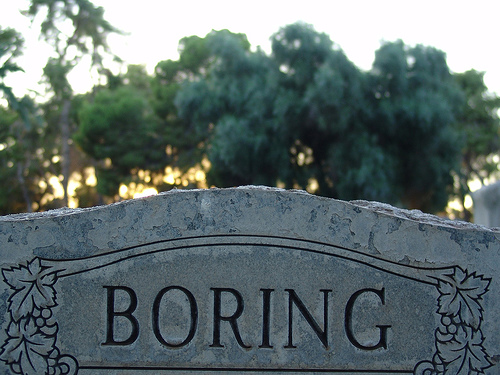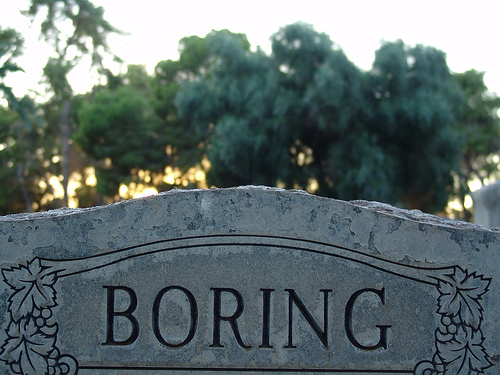I was on “Majority Report,” Sam Seder’s radio show, last Thursday, talking about Tim DeChristopher and civil disobedience. Have a listen:
I wanted to expand on something I said to Sam.
Climate change has been public knowledge for 30 years, yet concern in the U.S. remains shallow, like water sloshing in a pan, as Andy Revkin puts it. There’s very little intensity around the issue. Even with ample money, it’s difficult to build a successful political coalition without intensity.
The American public still sees climate change as distant, abstract, slow-moving, uncertain, and politically contested. Very few see it as a material threat to themselves or their families.
What will influence people to take climate seriously? I think one underappreciated answer to this question is that a bunch of people need to be seen taking it seriously. Human beings are social creatures; we do what we see our peers doing, particularly in stressful or uncertain situations. It’s called social proof: When we’re not sure what to do, we tend to assume that others are better informed and follow their lead.
 Rule No. 1 for civil disobedience: Don’t be boring.Photo: Cheryl ColanTherein lies the (potential) value of civil disobedience: It is a social signaling device. It says, “We are taking this seriously. We are willing to risk our comfort and safety, willing to get arrested, just to get you to pay attention to this.” If done well, in the right circumstances, that kind of behavior sends a stronger message than any compendium of scientific results ever could.
Rule No. 1 for civil disobedience: Don’t be boring.Photo: Cheryl ColanTherein lies the (potential) value of civil disobedience: It is a social signaling device. It says, “We are taking this seriously. We are willing to risk our comfort and safety, willing to get arrested, just to get you to pay attention to this.” If done well, in the right circumstances, that kind of behavior sends a stronger message than any compendium of scientific results ever could.
So yes, civil disobedience and direct activism are desperately needed. (Here’s some tar sands action coming up in a couple of weeks!)
That said, it’s obvious that not all civil disobedience or direct action has that kind of effect. A great deal of it has no effect at all, it just sinks like a stone without notice. Here we come to an aspect of Tim DeChristopher’s caper that hasn’t gotten enough attention. It’s not just that he was well-intentioned and courageous. Plenty of people do well-intentioned, courageous things that are nonetheless boring and nobody cares. What DeChristopher did also involved the crucial elements of surprise and delight. I mean, he just walked into a government oil-and-gas lease auction and started bidding sh*t up. That’s … absurd! And hilarious. And badass.
The problem with so much of what passes for environmental direct action is that it’s become rote and predictable. The kids chaining themselves together and getting arrested. The activists scaling something tall and unfurling a big banner. The protestors sitting in trees to stop loggers. All those things are brave and well-intentioned, don’t get me wrong, but they are not surprising. At this point, everyone’s seen it before and everyone knows exactly how to process it.
The officials and industry operatives at the oil-and-gas auction didn’t know how to process what DeChristopher did. He found a hole in a rigged game and walked right in. That kind of clever culture jamming is what draws attention these days. I’ll wager that most successful 21st century civil disobedience will be nonviolent and creative. It will use the extraordinary tools available to citizens today to pull off something unexpected, something with a twist, something that delights and surprises even as it educates. Repeated exposure to that sort of thing might even convince more Americans that giving a sh*t is what people do.
Civil disobedience is a display of intensity, a tiny bit of social proof, a candle in the darkness. But it only works if people notice.



